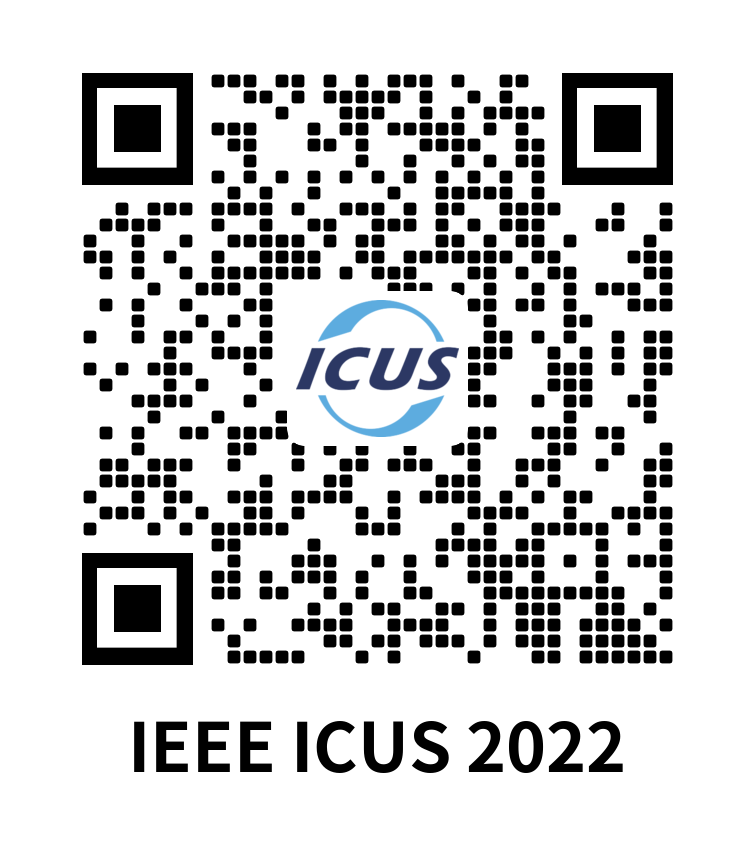keynote speakers
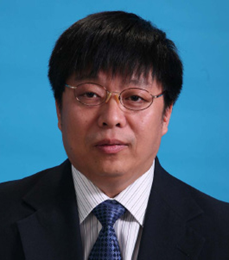
Prof. Derong Liu received the PhD degree in electrical engineering from the University of Notre Dame, USA, in 1994. He became a Full Professor of Electrical and Computer Engineering and of Computer Science at the University of Illinois at Chicago in 2006. He was selected for the “100 Talents Program” by the Chinese Academy of Sciences in 2008, and he served as the Associate Director of The State Key Laboratory of Management and Control for Complex Systems at the Institute of Automation, from 2010 to 2016. He has published 13 books. He received the International Neural Network Society’s Gabor Award in 2018 and the IEEE CIS Neural Network Pioneer Award in 2022. He has been named a highly cited researcher by Clarivate since 2017. He was the Editor-in-Chief of the IEEE Transactions on Neural Networks and Learning Systems from 2010 to 2015. He is the Editor-in-Chief of Artificial Intelligence Review (Springer). He is a Fellow of the IEEE, a Fellow of the International Neural Network Society, a Fellow of the International Association of Pattern Recognition, and a Member of Academia Europaea (The Academy of Europe).
Title:Advances of Adaptive Dynamic Programming and Reinforcement Learning for Optimal Control
Abstract: Researchers have been searching for novel control methods to handle the complexity of modern industrial processes. Artificial intelligence and especially machine learning approaches might provide a solution for the next generation of control methodologies that can handle the level of complexities in many modern industrial processes. It has been shown by many researchers that adaptive dynamic programming and reinforcement learning can do a very good job approximating optimal control actions and provide a nearly optimal solution for the control of complex nonlinear systems. It requires a combination of function approximation structures such as neural networks and optimal control techniques such as dynamic programming. This lecture covers recent development in ADPRL for optimal control of complex dynamical systems.
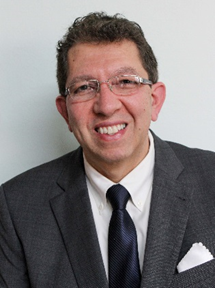
Dr. Marios Polycarpou is a Professor of Electrical and Computer Engineering and the Director of the KIOS Research and Innovation Center of Excellence at the University of Cyprus. He is also a Member of the Cyprus Academy of Sciences, Letters, and Arts, and an Honorary Professor of Imperial College London. He received the B.A degree in Computer Science and the B.Sc. in Electrical Engineering, both from Rice University, USA in 1987, and the M.S. and Ph.D. degrees in Electrical Engineering from the University of Southern California, in 1989 and 1992 respectively. His teaching and research interests are in intelligent systems and networks, adaptive and learning control systems, fault diagnosis, machine learning, and critical infrastructure systems. Dr. Polycarpou has published more than 400 articles in refereed journals, edited books and refereed conference proceedings, and co-authored 7 books. He is also the holder of 6 patents. Prof. Polycarpou received the 2016 IEEE Neural Networks Pioneer Award. He is a Fellow of IEEE and IFAC and the recipient of the 2014 Best Paper Award for the journal Building and Environment (Elsevier). He served as the President of the IEEE Computational Intelligence Society (2012-2013), as the President of the European Control Association (2017-2019), and as the Editor-in-Chief of the IEEE Transactions on Neural Networks and Learning Systems (2004-2010). Prof. Polycarpou currently serves on the Editorial Boards of the Proceedings of the IEEE, the Annual Reviews in Control, and the Foundations and Trends in Systems and Control. His research work has been funded by several agencies and industry in Europe and the United States, including the prestigious European Research Council (ERC) Advanced Grant, the ERC Synergy Grant and the EU Teaming program. Prof. Polycarpou is the recipient of the 2023 IEEE Frank Rosenblatt Technical Field Award.
Title: Distributed Fault Diagnosis
Abstract: The emergence of interconnected cyber-physical systems and sensor/actuator networks has given rise to advanced automation applications, where a large amount of sensor data is collected and processed in order to make suitable real-time decisions and to achieve the desired control objectives. However, in situations where some components behave abnormally or become faulty, this may lead to serious degradation in performance or even to catastrophic system failures, especially due to cascaded effects of the interconnected subsystems. Distributed fault diagnosis refers to monitoring architectures where the overall system is viewed as an interconnection of various subsystems, each of which is monitored by a dedicated fault diagnosis agent that communicates and exchanges information with other “neighboring” agents. The goal of this presentation is to provide insight into various aspects of the design and analysis of intelligent monitoring and control schemes and to discuss directions for future research.

Dr. Karl H. Johansson is Director of Digital Futures and Professor at the School of Electrical Engineering and Computer Science, KTH Royal Institute of Technology, Sweden. He received MSc and PhD degrees from Lund University. He has held visiting positions at UC Berkeley, California Institute of Technology, Nanyang Technological University, Institute of Advanced Studies Hong Kong University of Science and Technology, and Norwegian University of Science and Technology. His research interests are in networked control systems, cyber-physical systems, and applications in transportation, energy, and automation systems. He is a member of the IEEE Control Systems Society Board of Governors and the European Control Association Council. He is past Chair of the IFAC Technical Committee on Networked Systems. He has been on the Editorial Boards of Automatica, IEEE Transactions on Automatic Control, and IET Control Theory and Applications. He is currently a Senior Editor of IEEE Transactions on Control of Network Systems and Associate Editor of European Journal of Control. He was the General Chair of the ACM/IEEE Cyber-Physical Systems Week 2010 in Stockholm and IPC Chair of many conferences. He received the Best Application Paper Award of IEEE Transactions on Automation Science and Engineering 2015, the Best Theory Paper Award of the World Congress on Intelligent Control and Automation 2014, and the Best Paper Award of the IEEE International Conference on Mobile Ad-hoc and Sensor Systems 2009. In 2009, he was awarded Wallenberg Scholar, as one of the first ten scholars from all sciences, by the Knut and Alice Wallenberg Foundation. In 2017, he received a Distinguished Professor Grant from the Swedish Research Council. He was awarded Future Research Leader from the Swedish Foundation for Strategic Research in 2005. He received the triennial Young Author Prize from IFAC in 1996 and the Peccei Award from the International Institute of System Analysis, Austria, in 1993. He was granted Young Researcher Awards from Scania in 1996 and from Ericsson in 1998 and 1999. He is a member of the Royal Swedish Academy of Engineering Sciences, Fellow of the IEEE, and IEEE Distinguished Lecturer.
Title: Receding Horizon Control Based on Temporal Logic Specifications for Unmanned Systems
Abstract: Controllers for unmanned and automated vehicular systems need to handle complex and varying objectives and constraints. Traditional control methods, such as model predictive control, however, can efficiently incorporate only state and input constraints into the control synthesis problem. In this talk, we will discuss how more complex specifications based on temporal logic can be included. We introduce the new notion of a temporal logic trees (TLT) and show how they can be derived from any linear temporal logic (LTL) formula using classical reachability analysis. Conditions are given to verify whether a system satisfies an LTL formula by using TLT. The presented framework allows the treatment of uncertain and time-varying systems as well as complex environment models. We give an online control synthesis algorithm, under which a set of feasible control inputs can be efficiently generated with provable robustness guarantees. The proposed method is demonstrated in an application of a shared-autonomy system consisting of a connected and automated vehicle interacting with a remote operator. It is shown how safety guarantees can be fulfilled in such a system with mixed human and artificial decision-making. The talk is mainly based on joint work with Yulong Gao, Frank Jiang, Mirco Giacobbe, and Alessandro Abate.
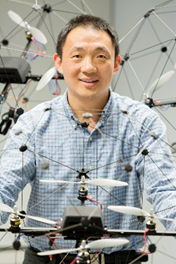
Prof. Yang Shi, is Fellow of IEEE, ASME, CSME, and Engineering Institute of Canada (EIC), and a registered Professional Engineer in British Columbia, Canada. He received B.Sc. and Ph.D. degrees in mechanical engineering and automatic control from Northwestern Polytechnical University, Xi’an, China, in 1994 and 1998, respectively, and the Ph.D. degree in electrical and computer engineering from the University of Alberta, Edmonton, AB, Canada, in 2005. From 2005 to 2009, he was an Assistant Professor and Associate Professor in the Department of Mechanical Engineering, University of Saskatchewan, Saskatoon, SK, Canada. In 2009, he joined the University of Victoria, and now he is a Professor in the Department of Mechanical Engineering, University of Victoria, Victoria, BC, Canada. His current research interests include networked and distributed systems, model predictive control (MPC), cyber-physical systems (CPS), robotics and mechatronics, navigation and control of autonomous systems (AUV and UAV), and energy system applications. Dr. Shi received the University of Saskatchewan Student Union Teaching Excellence Award in 2007, and the Faculty of Engineering Teaching Excellence Award in 2012 at the University of Victoria (UVic). He is the recipient of the JSPS Invitation Fellowship (short-term) in 2013, the UVic Craigdarroch Silver Medal for Excellence in Research in 2015, the 2017 IEEE Transactions on Fuzzy Systems Outstanding Paper Award, the Humboldt Research Fellowship for Experienced Researchers in 2018. He is Vice President of IES, Chair of IEEE IES Technical Committee on Industrial Cyber-Physical Systems, and was on the IES Fellow Evaluation Committee during 2017-2019. Currently, he is Co-Editor-in-Chief for IEEE Transactions on Industrial Electronics; he also serves as Associate Editor for Automatica, IEEE Transactions on Automatic Control, IEEE Transactions on Cybernetics, etc. He is General Chair of the 2019 International Symposium on Industrial Electronics (ISIE) and the 2021 International Conference on Industrial Cyber-Physical Systems (ICPS).
Title: Adaptive and Learning Model Predictive Control for Unmanned Systems
Abstract: Model predictive control (MPC) is a promising paradigm for high-performance and cost-effective control of complex dynamic systems. This talk will introduce some recent results on adaptive and learning model predictive control (MPC) for a class of constrained dynamic systems with unknown model parameters. By proactively designing the online estimation mechanism and constructing the tube-based adaptive MPC scheme, the enhanced performance can be achieved compared to the robust tube MPC method. The application of adaptive and learning MPC to unmanned systems will be introduced. Some existing challenges and future research directions will be discussed.
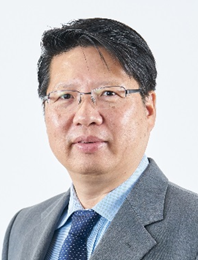
Prof. Danwei Wang is Fellow of IEEE, Fellow of Academy of Engineering Singapore, Fellow of Alexander von Humboldt, Germany. He is a professor, School of Electrical and Electronic Engineering, Nanyang Technological University, Singapore. He is an Editor, IEEE IROS (International Conference on Intelligent Robotics and Systems) since 2019. He has published 6 books, 7 book chapters, 9 patents (5 published and 4 filed) and over 500 technical papers and articles in international refereed journals and conferences. His research interests include manipulator/mobile robot dynamics; iterative learning control; repetitive control; path planning and control; model-based fault diagnosis and identification as well as prognosis; satellite formation flying. SCI citations to his papers amount 8800+ as of Feb. 2022 and Google Scholar citations are well over 16,000.
Title: Multi-Modal Sensing and Autonomous Systems
Abstract: Autonomy technologies have been matured to such a stage of enabling wide spectrum of applications. Industries have high expectations of the intelligent and autonomous systems as they can enhance to their competitiveness. One indispensable component is the sensing and perception which enable the decision making and execution at various levels and loops of a complex intelligent autonomous systems. In this talk, the state-of-the-art of sensing and perception for autonomous systems are reviewed and relevant technologies are shown in various applications such as autonomous systems in logistics etc. Multi-modal sensing and perception to achieve reliable and robust outdoor scenarios. Artificial Intelligence and machine learning techniques are shown to enhance perceptions for intelligent systems. Some applications are demonstrated including environmental service sweepers and high-fidelity tele-operations, multi-robot coordination and intelligent traffic monitoring systems, etc.
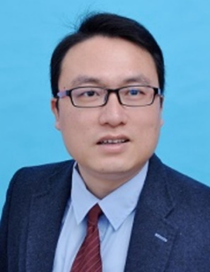
Prof. Guanghui Wen (Senior Member, IEEE) received the Ph.D. degree in mechanical systems and control from Peking University, China, in 2012. Currently, he is a Professor with the Department of Systems Science, Southeast University, Nanjing, China. His current research interests include autonomous intelligent systems, analysis and control of complex networked systems, distributed control and optimization, resilient control, and distributed reinforcement learning. Prof. Wen was awarded a National Natural Science Fund for Excellent Young Scholars in 2017 and the Chang Jiang Scholars Programme of China for Young Scholars in 2020. Moreover, he was a recipient of the Australian Research Council Discovery Early Career Researcher Award in 2018 and a recipient of the Asia Pacific Neural Network Society Young Researcher Award in 2019. He is a reviewer for American Mathematical Review and is an active reviewer for many journals. He currently serves as an Associate Editor of the IEEE Transactions on Intelligent Vehicles, the IEEE Journal of Emerging and Selected Topics in Industrial Electronics, the IEEE Transactions on Systems, Man and Cybernetics: Systems, and the Asian Journal of Control. Prof. Wen has been named a Highly Cited Researcher by Clarivate Analytics since 2018. He is an IET Fellow.
Title: Distributed Consensus Control of Multi-Agent Systems with Switching Topologies
Abstract: Distributed consensus control of multi-agent systems has recently received much attention from various scientific research communities. To ensure the achievement of consensus in the whole group, agents need to coordinate their consensus variables through communicating with their neighbors. However, the underlying topology among the agents may exhibit switching behaviors, due to the effect of limited communication range, commination channel failures, communication jamming, etc. Within this context, the distributed consensus control problem of multi-agent systems with switching topology has become a frontier scientific problem in the field of systems and control. In this talk, distributed leaderless and leader-following consensus for general multi-agent systems under switching directed topologies will be discussed. In the first part, the study of leaderless consensus of general linear multi-agent systems under switching directed topologies will be shown. In the second part, several theoretical results on leader-following consensus of multi-agent systems with general linear and Lipschitz-type nonlinear dynamics under directed switching topologies will be given respectively by showing that leader-following consensus in such multi-agent systems can be achieved if the protocols are appropriately designed and the (average) dwell-time for the switching signal is larger than a threshold value. At last, some simulation and experimental results are provided for illustration.
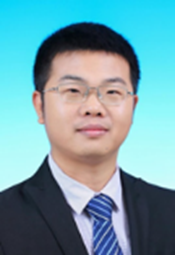
Dr. Xiwang Dong is a professor and doctoral supervisor of Beihang University, China. In 2017, he was selected into the Young Elite Scientist Sponsorship Program by CAST. In 2019, he was approved by the National Natural Science Foundation of China for Outstanding Young Scholars. In 2021, he was awarded the Young Scientist of CICC. In 2022, he was selected as a highly cited scholar of Elsevier China. He served as the director of Youth Work Committee of CICC, the director general of Swarm Intelligence and Cooperative Control Professional Committee of CICC, the deputy secretary-general of Youth Work Committee of CAA, and the deputy dean of Institute of Artificial Intelligence in Beihang University. He mainly studies swarm intelligence, cooperative guidance and control, cooperative decision-making and aircraft swarm, and pays equal attention to theory and practice. He has developed a swarm intelligence cooperative verification platform based on UAVs and UGVs, and carried out a series of experiments and verifications. It supports the completion of the 2018 and 2021 Air Force Unmanned Front Competition, where UAV intensive formation flew through the speed competition, and won the only winner and champion among more than 50 participating teams. He has published more than 80 SCI papers in IEEE TAC, TCST and other international well-known journals such as Automatica as the first and corresponding author. Two English monographs were published in Springer and Taylor Francis, and more than 30 national invention patents were authorized/accepted. He has successively won the first prize of Scientific and Technological Progress Award and the first prize of Innovation Award of CICC, the first prize of Technological Invention Award of China Invention Association, the second prize of China Industry University Research Cooperation Innovation and Promotion Achievement Award, Wu-Wenjun Artificial Intelligence Outstanding Youth Award, etc.
Title: Cooperative control theory of swarm system and its application in aircraft swarm
Abstract: Swarm intelligence is an important research field of the new generation of artificial intelligence. Aircraft is a typical object in the swarm system, which has broad application prospects in military and civil fields. Cooperative control is the guarantee and approach for the emergence of intelligence in swarm systems. The swarm system represented by aircraft has typical application characteristics such as large-scale, open, high dynamic and strong robustness. These characteristics enable the distributed implementation of relevant algorithms for cooperative control. This report mainly introduces the distributed time-varying formation control, formation tracking control and formation containment control technologies in the cooperative control of the swarm system, and demonstrates the effectiveness of the proposed technologies in combination with the series of flight tests on the UAV swarm. Finally, the application in the competition of the Air Force "Unmanned for Front" Intelligent UAV Swarm System Competition is demonstrated as an example, and the possible development directions in the future are outlined.
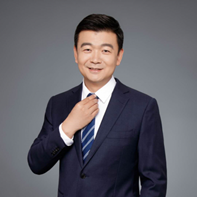
Prof. Hongbo Chen, Dean of School of Systems Science and Engineering, Sun Yat-sen University, China, graduated from the School of Astronautics of Harbin Institute of Technology, and obtained a Ph.D in aircraft design and engineering. He started his career in the First Research Institute of China Aerospace Science and Technology Corporation (CASC) in 2007; in 2018, he was transferred to the School of Systems Science and Engineering, Sun Yat-Sen University. Hongbo Chen has abundant work experience in the core positions of the national defense industry. He has been engaged in the pre-research and innovation work of major national projects for years. His innovative research and system engineering practices concentrate in the fields of aerospace transportation systems and aerospace unmanned systems, many key technical problems have been conquered by him and his team. He has presided over and participated in more than 10 major projects above the provincial and ministerial level. He was granted the "Aerospace Contribution Award" of the CASC. As the project leader and the key personnel of the team, he has successively won 1 third prize of National Defense Science and Technology Progress Award, 2 second prizes of the CASC Science and Technology Award. He and his team have earned the title of innovation team in key areas from the Innovation Talent Promotion Plan of the Ministry of Science and Technology, the Advanced Technology Innovation Team from both the program of the former 863 Plan and the CASC, etc. As the main author, Hongbo Chen has been granted 26 patents, including 11 inventions; as the first author or main author, he has published more than 30 academic papers and 2 books.
Title: Intelligent Perception and Cooperative Control of Unmanned Swarm System
Abstract: This talk reviews the relevant research regarding the unmanned swarm system at first, and then introduces the most recent research progress of our team: 1) Designed a multi-modal ground platform to acquire swarm cooperative sensing datasets, studied distributed cooperative localization and mapping algorithm under limited communication conditions, and verified the algorithm accuracy and robustness using the collected dataset; 2) Proposed a collaborative navigation algorithm for unmanned systems in the underground environment and developed a principle prototype, a 10cm navigation accuracy is achieved in the actual test; 3) Proposed a new partial ambiguity resolution algorithm for the precise positioning of satellite navigation, nearly 40% availability improvement is acquired for the high-precision positioning solutions; 4) Researched on the intelligent cooperative planning and fault-tolerant formation control for unmanned swarm systems, solving the coordinated control problems of the unmanned swarm system under extreme situations such as complex and unknown obstacle environment, limited computing and communication capabilities of the swarm, and the failure of the actuators. Finally, thoughts on the future development of intelligent perception and cooperative control of the unmanned swarm system are shared.


